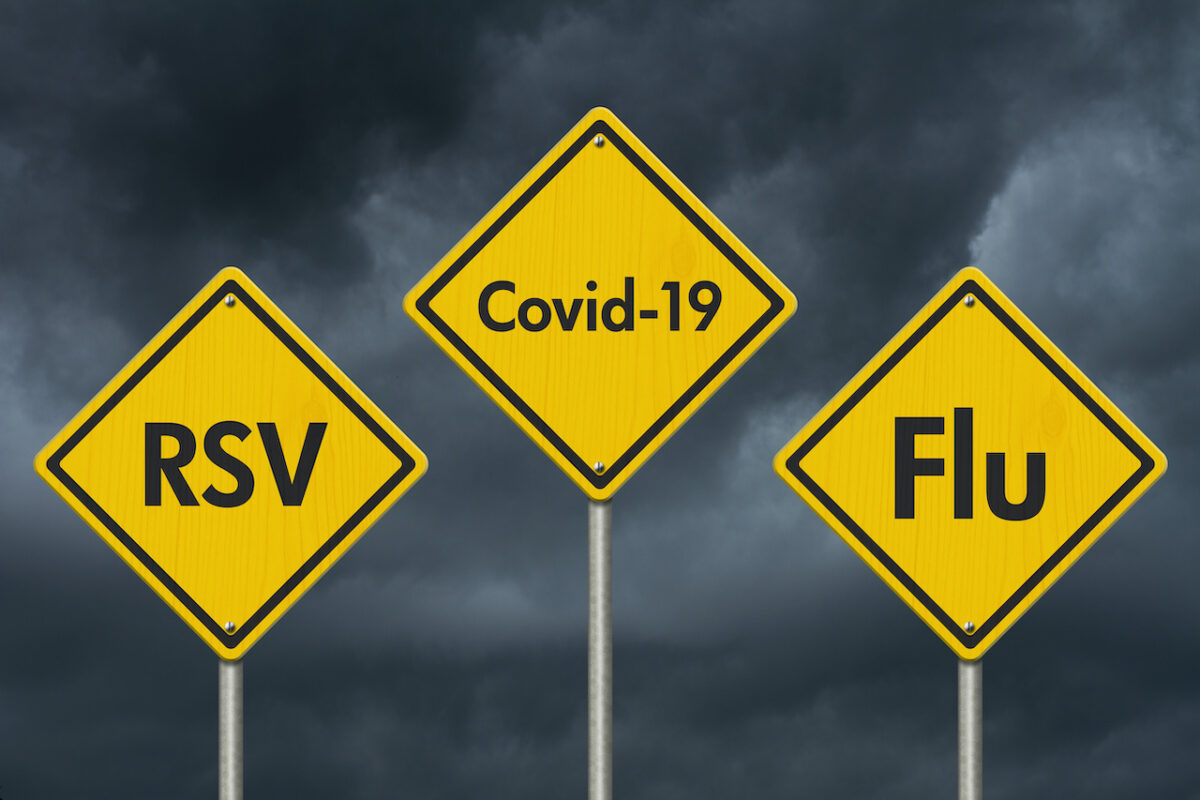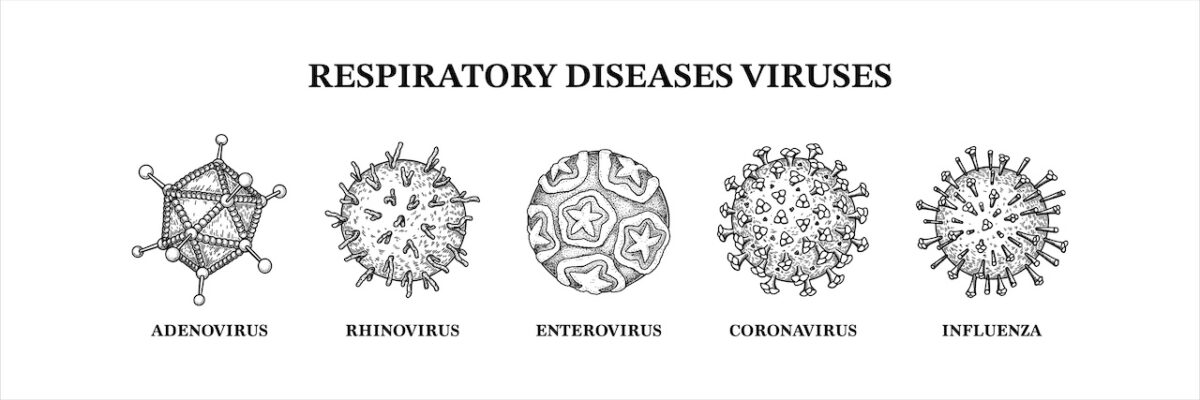What is RSV?

What is RSV?
RSV stands for respiratory syncytial virus. RSV is a virus that can cause infections of the lower respiratory tract. Two types of lower respiratory tract infections are pneumonia (lung tissue infection) or bronchiolitis (bronchioles infection). RSV is one of the many causes of the common cold, as well as infections of the upper respiratory tract. RSV ‘season’ starts in the fall, peaks in the winter, and ends at the end of spring. However, the timing of RSV season can vary from year to year.
How do you get RSV?
RSV is spread by ‘droplets’ of RSV virus from RSV positive patients. Examples may include…
- Infected patient coughs or sneezes in your eyes, nose, or mouth
- Direct person-to-person contact (example: kissing)
- Contact with surface that has RSV virus on it (example: doorknob, phone, cash register) and then comes in contact to your eyes, nose, or mouth

Symptoms of RSV?
RSV signs and symptoms generally appear 1 week after exposure to the virus. The symptoms of RSV will present like a common cold, but will typically be more severe.
- Sore throat
- Runny nose, Stuffy nose
- Cough
- Wheezing
- Headache
- Fever
In young children, RSV may start out like a mild cold (sneezing, runny or stuffy nose) and then spread to the chest causing more severe symptoms (cough, increased rate of breathing, wheezing). Infants with RSV are at risk of even more severe signs and symptoms of grunting, flaring of the nostrils, and chest retractions.
Treatment for Mild RSV infections
- Over-the-counter medication for fever and pain: acetaminophen (Tylenol), or ibuprofen (Advil)
- Check with your medical provider to make sure an over-the-counter medication is safe.
- Drink plenty of fluids (water, electrolyte beverages): prevent dehydration
- Rest
- Humidifier
- Saline (salt water) nose drops
Treatment for infants and younger children with Severe RSV infections
Healthy adults and infants typically do not need to be hospitalized. Older adults and infants younger than 6 months of age are at increased risk of hospitalization.
- Hospitalization for difficulty breathing or dehydration
- Oxygen
- IV fluids
- Medications to help breathing
- Ribavirin antiviral medication for immunosuppressed patients: antiviral medications are NOT routinely used for the treatment of mild RSV.
Summary:
- RSV Treatment:
- Mild cases: Over-the-counter fever/pain meds, fluids, rest, humidifier, saline drops.
- Severe cases in infants: Hospitalization, oxygen, IV fluids, breathing support.
- Antivirals not routine for mild RSV.
- What is RSV?
- Respiratory Syncytial Virus (RSV) causes colds, upper, and lower respiratory infections.
- Season: Fall to late spring; symptoms include sore throat, runny nose, cough, and fever.
- When to Call Healthcare Provider:
- Infants with high fever, severe cough, wheezing, difficulty breathing/feeding, fast breathing.
- Seek medical advice for symptoms like grunting, flaring nostrils, chest retractions, or blue lips.

This article reviewed by Dr. Jim Liu, MD and Ms. Deb Dooley, APRN.
There’s nothing more important than our good health – that’s our principal capital asset.
#medical #telehealth #umedoc






